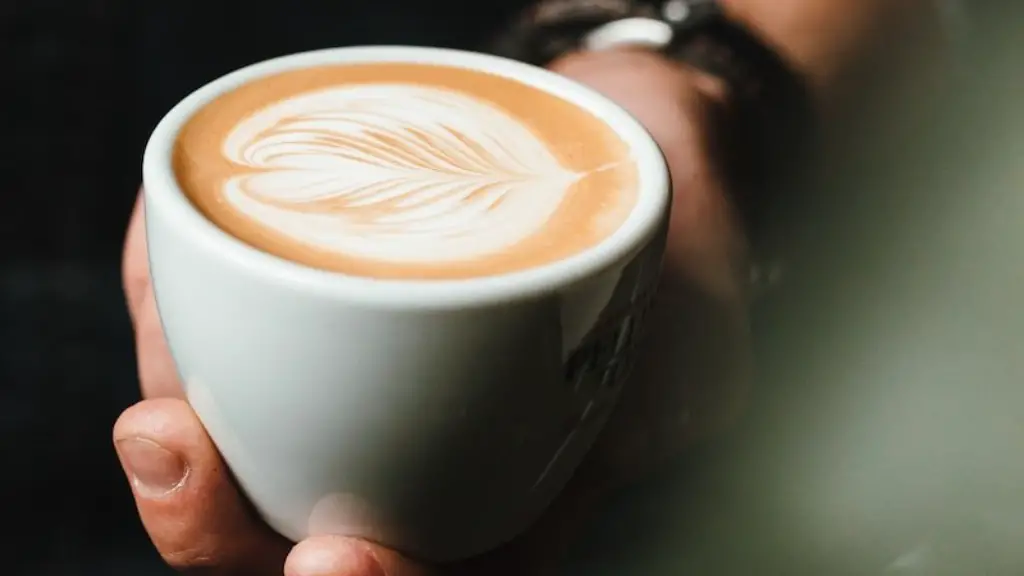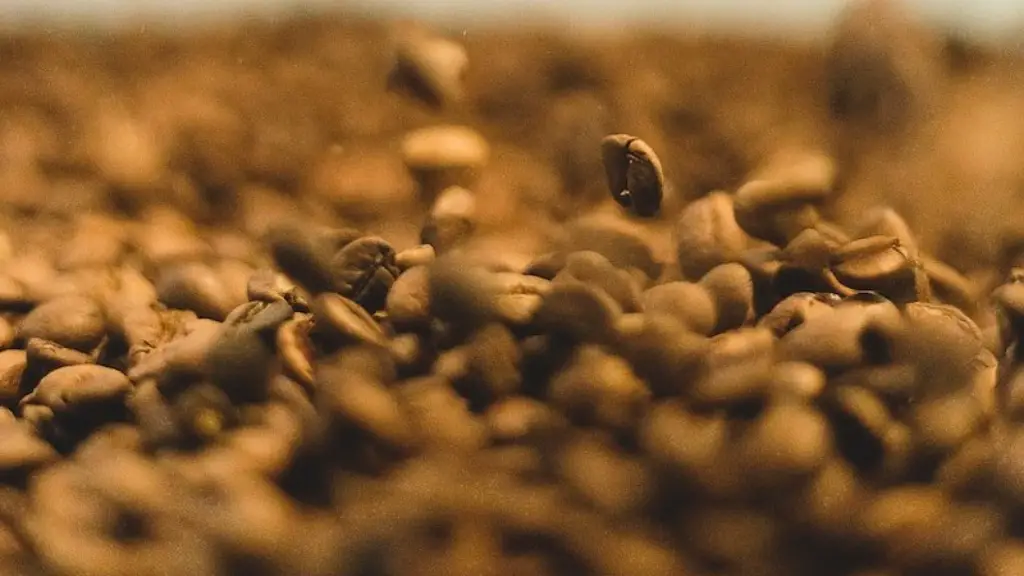Drinking Coffee When Suffering from IBS
Irritable bowel syndrome (IBS) is a complex condition that causes recurring pain, cramps, bloating, gas and changes in your bowel habits. It can be worsened by certain foods and drinks, including coffee and other caffeinated beverages. When you suffer from IBS, it can be difficult to know what to drink and how to enjoy coffee without further aggravating your condition. However, there are tips and tricks you can use to drink coffee with IBS and still get that much-needed caffeine boost.
Background Information
IBS is a common gastrointestinal disorder that affects an estimated 10% to 20% of people. It is caused by a combination of diet, lifestyle, anxiety, depression and stress. Symptoms include abdominal pain and discomfort, bloating and gas, diarrhea, constipation, and unpredictable bowel movements. Coffee, a popular morning beverage, can aggravate IBS symptoms, leaving you feeling worse instead of energized. It’s important to understand the effects that coffee can have on IBS.
Understand the Caffeine Content
Caffeine can cause an increase in abdominal pain and discomfort, headache, anxiety, and dehydration in people with IBS. Understanding the amount of caffeine in your favorite drinks is important so that you can limit your intake to prevent symptoms from worsening. Keep in mind that the average cup of coffee contains between 95 and 200 milligrams of caffeine. So if you’re having more than two cups of coffee a day, you may want to start limiting your intake.
Look for Decaffeinated Options
Decaffeinated coffee is an excellent way to enjoy the flavor of coffee without the aggravating effects of caffeine. Decaffeinated coffee is produced by either the Swiss water process or the solvent process. The Swiss water process uses water to extract the caffeine from the beans, while the solvent process uses a chemical solvent to do the same. Decaffeinated coffee generally contains less than five milligrams of caffeine per cup.
Choose Quality Beans
Organic, high-quality coffee beans are also a good option for those with IBS. The fresher the beans, the less spiciness and acidic flavor that it will have, which can help to reduce the aggravation of IBS symptoms. A light roast coffee is a good option for those with IBS, as it has fewer bitter flavor compounds that can stimulate gut distress.
Make it Cold
Another way to enjoy coffee with IBS is to make it cold. Coldbrew coffee is much gentler on the stomach than hot coffee because it is brewed with cold water and is naturally less acidic. Cold-brew coffee can also be enjoyed with milk or cream, making it a refreshing and nourishing drink. It’s important to know that cold-brew coffee contains more caffeine than regular coffee, so it’s important to drink it in moderation.
Add Some Spice
Adding spices to your coffee can help to reduce the aggravation of IBS symptoms. Ginger, for instance, is a natural anti-inflammatory and digestive aid. Cinnamon also has anti-inflammatory properties and can help to reduce gas, bloating, and other symptoms. As an added bonus, spices can help to improve the flavor of coffee and make it more enjoyable.
Consider Alternatives
If drinking coffee is too tough on your body, there are other alternatives that can help to give you that much-needed energy boost. Tea is an excellent alternative, as it generally has less caffeine than coffee. Herbal teas such as chamomile, peppermint, and ginger can also help to soothe digestive symptoms. Additionally, you can try yerba mate, a tea-like beverage made from the leaves of the yerba mate plant. It contains caffeine, but also has other nutrients that can benefit your health.
Nutritional Supplements
In addition to drinking coffee, you may want to consider trying some nutritional supplements. Probiotics can help to reduce inflammation and improve gut health, while digestive enzymes can help to break down food more effectively. Supplements such as omega-3 fatty acids and magnesium can also help to reduce inflammation and improve overall digestive health. It’s important to talk to your doctor before taking any supplements to make sure they won’t interfere with other medications you might be taking.
Avoid Trigger Foods
Certain foods can trigger IBS symptoms and make drinking coffee difficult. Foods that are high in fat, sugar, and artificial sweeteners can all trigger IBS symptoms. Additionally, it’s important to stay hydrated by drinking plenty of water, as dehydration can worsen IBS symptoms. Cutting out soda and other sugary drinks can also help to lessen IBS symptoms.
What Your Doctor Is Looking For
If you suffer from IBS, it’s important to talk to your doctor about your specific symptoms and any changes that occur in your diet. They may suggest dietary changes or a different approach to managing your symptoms. Additionally, your doctor may alsorecommend medication that can help to reduce abdominal pain and discomfort.
Attending Physiotherapist
Sometimes IBS can be exacerbated by tight or overactive muscles around the abdomen. In these cases, it may be beneficial to seek the help of a physiotherapist. They can recommend exercises and other techniques to help manage or reduce pain and discomfort. A physiotherapist can also provide advice on how to manage IBS flares. Regular exercise and relaxation techniques, such as yoga and meditation, can also be helpful.
Questions to Ask Your Doctor About Coffee and IBS
If you’re considering drinking coffee with IBS, it’s important to talk to your doctor first. Here are some questions to ask them about coffee and IBS: Does coffee worsen the symptoms of IBS? Is it safe for me to drink coffee? Can I drink decaffeinated coffee? Are there any supplements I should take to reduce IBS symptoms? Are there any foods that I should avoid if I am drinking coffee? What can I do to manage IBS flares?
Diagnosing IBS
It can be difficult to diagnose IBS, as it is often linked to other medical conditions. It’s important to talk to your doctor if you’re experiencing any symptoms of IBS. They can evaluate you and help to determine the best course of treatment. Once the cause of the IBS has been determined, they can then recommend lifestyle changes and possibly medications that can help to improve your symptoms.
Support Groups
Living with IBS can be challenging and it’s important to remember that you’re not alone. Joining a support group can help to provide you with emotional and practical support.Many cities and towns have support groups specifically for those living with IBS. These groups can be a great source of information and can help you to find resources for managing your condition.
Conclusion
Drinking coffee with IBS can be a challenge but it is possible to enjoy coffee without further aggravating your symptoms. By understanding the caffeine content, looking for decaffeinated options, choosing high-quality beans, making it cold, adding some spice, finding alternatives to coffee, taking nutritional supplements and avoiding certain trigger foods, you can enjoy that much-needed coffee without the unpleasant side effects.




